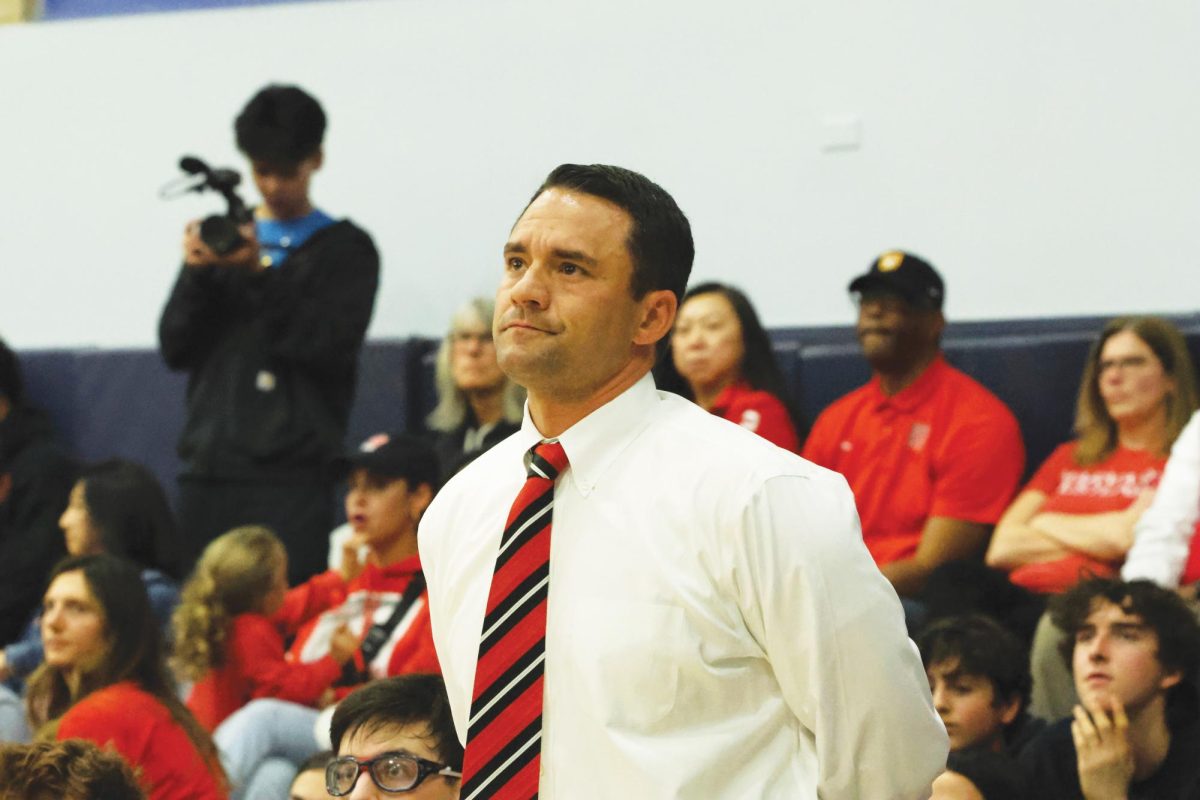By Lauren Rose
Eric Olliff â07 had a system: heâd give his United States history study guides to close friends for free, sell them for $5 to his âkind ofâ friends and for $10 to people he didnât know very well. He donated some of the money to the Friends of Animals Foundation, saved some of it and spent some of it. He estimates that he made about $300 out of the endeavor.
Olliff is not the only upper school student to sell study guides to other students. These students are adopting a trend typically associated with college campuses. Though few students actually sell the study guides, the demand is huge and a large number of students have bought them.
âWe were kind of blatant,â Olliff said. âThe day of the test [in US History], five or six kids in class would all have the study guide out, everyoneâs like freaking out right before and theyâre all reading the exact same one. But he [the teacher] never said anything.â
Some teachers believe the practice is unethical.
âI think itâs dishonorable,â Upper School History Department Chair Katherine Holmes-Chuba said. âItâs a very slippery path. I think they know itâs a slippery path. [There is] something inherently dishonest in the whole thing.â
But history teacher and Honor Board member Nini Halkett does not believe that the practice could bring students in front of the Honor Board.
âI donât think that it is necessarily immoral, but neither do I think it is particularly honorable behavior for either the buyer or the seller.â
âI wouldnât say it is violating the letter of the law (in this case, the Honor Code) but it is perhaps against the spirit of the law,â she said.
The school has no policy for dealing with the practice, and some faculty members are not even aware of its existence.
âI donât think itâs immoral, but it does seem a little unethical,â Upper School Dean Jason Honsel said.
âIâm not sure I would advocate punishment unless the school institutes a policy forbidding it.â
The demand for study guides is particularly popular in text-heavy classes like history. Last fall, two students in AP History of Art began creating elaborate study guides with pictures and text, sometimes running around 80 pages in length.
âA lot of people wanted them, so we started charging,â one of the students said. They typically sold three to five study guides per unit, at $10 or $15 each, depending on length. They split the money and went out to lunch after the test.
One of the students believes that there is nothing dishonorable about selling study guides.
âIf the department wants their kids to do well, then overall these study guides help people learn the material better, she said.
âThereâs nothing wrong with trying to learn new things to do well. This isnât any different than buying an SAT prep book or anything else that someone made, just in this case itâs in our school environment.â
Olliffâs study guides ranged from five to 10 pages, and he typically sold more than 10 study guides per unit. He charged for his study guides because of the time and cost of putting them together.
âI kind of felt like a sleazebag, yeah, but I did it at home and the ink cartridges are super expensive, so that cost money. It took a considerable amount of time doing all that stuff, so in a way I felt kind of like a jerk, but I also didnât.â
Some students create study guides and distribute them to large groups of students for free. Justin Sheng â07 has been giving out his study guides since the middle of 10th grade and estimates that he has made 30 total and has given them to 100 students.
He shares his study guides because âAs clichéd and overused as it sounds, I just wanted to help,â he said.
âI guess it was just this idea that I had something to offer, and it would be unfair for me not to make it freely available.â
Though recipients of his study guides have said that they would pay for them, Sheng doesnât sell his study guides because he believes âthereâs something essentially wrong with charging for knowledge or the means to knowledge.â
At the top of some of the guides, Sheng put âa reminder that this is an aid, that I canât guarantee everything is 100 percent correct and that theyâre going to have to study for themselves regardless of what I put on here.â
Head of Upper School Harry Salamandra expressed a similar sentiment.
âThe person putting together a study guide does not have the âanswersâ from the teacher, so I feel that students are taking a chance relying on a study guide that may not have included all of the important facts,â he said.
Halkett agrees.
âFrankly, it is not going to be an effective way to study for the student buying the guide,â she said.






































